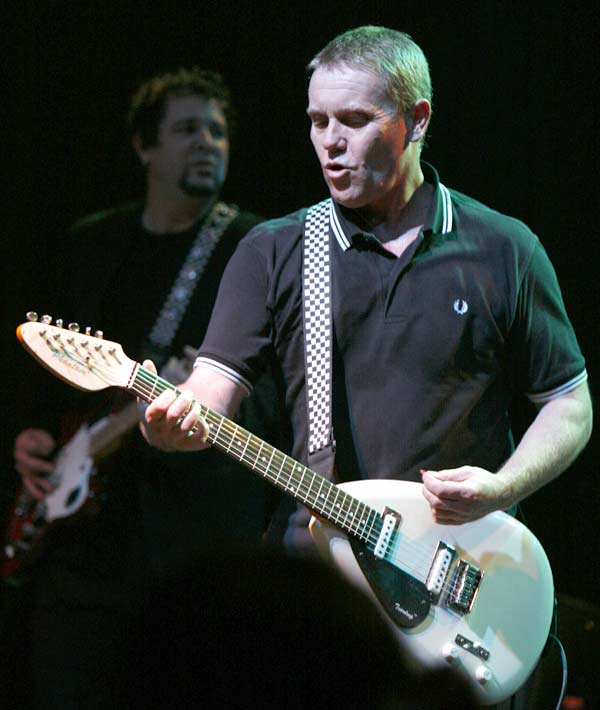The English Beat’s Dave Wakeling Discusses the Rhythms of Life
Singer Reflects on Times Ahead and Behind in Advance of SOhO Show

Dave Wakeling, lead singer of The English Beat — who play SOhO Restaurant & Music Club this Saturday, June 4 — is in speech as he is in music: thoughtful, smart, and ahead of his time. In the course of our phone interview, the conversation meandered from music to mall culture, and from American politics to the ways different societies age.
It came as no surprise. Ever since breaking onto the ska and punk scenes with their distinctive 2 Tone sound in the 1980s, The English Beat has made no strict separation between the personal and the political, the ideological and the material. Pairing incisive lyrics with irresistibly catchy melodies, the band stood out as one of the more intelligent acts on the charts, tackling issues of race, gender, and labor politics through the power of ska-punk revivalism.
Wakeling says it was the proliferation of car manufacturers in the English Midlands that inspired the 2 Tone genre, which shattered color barriers. “It started in the Midlands because prejudice was broken down on the factory floor,” he said. “After a few years, you realize the guy next to you on the factory track has a lot more in common with you than differences.” While these working-class conditions fostered a diversely accepting atmosphere, elsewhere in England, the band caught flack for having more than one skin tone in the lineup.
The band’s message was pertinent then as it is now, with political and societal issues having a way of cycling right back around for a reunion just as bands do. As the rest of their countrymen were eyeing non-whites with prejudice in the Thatcher era, “thinking anybody who looks or acts a bit different to be entirely suspicious,” he said, “2 Tone spotted the similarities between people and had open enough minds not to just immediately, reactively call them hooligans.” The band recognized that racial unrest came from “politically motivated poverty and lack of opportunity.” When a series of riots struck the streets of London in 2011, Wakeling said, the prejudicial rhetoric was eerily the same.
While right-wingers may be slinging the same slanders now as they were then, singing the English Beat songs from back then has brought Wakeling a greater sense of repose. “I now smile more and use my energy to connect the songs to the audience more than I used to — it’s not frightening anymore. One of the places now when I feel most calm in life is on the stage in the middle of a load of noise and loads of people flying around,” he said.
He’s also been working on new material. The band’s newest, Here We Go Love, will be their first in decades when it sees a summer release. Maturity has brought with it a “bluntness” to the new lyrics, and of course, “the growing amount of tragedy you see in your second half starts to temper” work both new and old. But rather than “relive the glory days of youth” like their aging British fans are sometimes known to do, dancing on weak knees, Wakeling seems more like his American audiences, growing old gracefully and “coming to celebrate how well they have done since they loved the record in college.”
Reminiscing about the bygone thrift stores and antique shops of State Street circa 1982, when the band opened for The Clash here, Wakeling said of contemporary Santa Barbara that “now it’s like Birmingham, you know, where you are between the Old Navy and the Starbucks,” and went on to reflect on the ways in which early hopes have been subsumed by commercial forces. “We don’t seem to be able to develop as quickly as our systems; our systems are trapping us a bit.”
Unlike many other musicians who revive the music of their earlier careers, Wakeling shows no longing for the past. He said that he is “quite proud” to see music he wrote live on in multiple touring incarnations, with Ranking Roger touring The Beat in Britain and other former collaborators singing the same material elsewhere. He keeps an open mind toward what may come, and tries not to believe too firmly in their former stadium days. “Sometimes you carry too much knowledge from the past and not enough flexibility to deal with the future,” he said. With this in mind, his English Beat, most likely, will go on for years to come.
The English Beat plays SOhO Restaurant & Music Club (1221 State St.) on Saturday, June 4, at 9:30 p.m. For more information, call (805) 962-7776 or visit sohosb.com.



